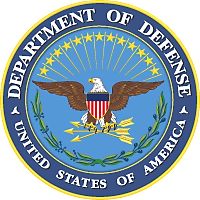New Qualitative Research Identifies Influencers and Potential Barriers to Military and Overseas Voting, FVAP Takes Action
Federal Voting Assistance Program sent this bulletin at 07/31/2015 12:42 PM EDTNew Qualitative Research Identifies Influencers and Potential Barriers to Military and Overseas Voting, FVAP Takes Action
ALEXANDRIA, Va. – The Federal Voting Assistance Program (FVAP) has released its
“Uniformed and Overseas Citizens Absentee Voting Act Voting: Successes and Challenges” report, which identifies factors that can influence voting success and points out potential barriers to military members and overseas citizen voters. FVAP conducted extensive research that included in-depth interviews, ethnographies and focus groups with various stakeholders. Based on the findings, FVAP is pursuing the following actions:
-
First Steps:
- Leverage military spouse organizations;
- Increase social media campaigns to disseminate information and engage other users; and
- Engage the Department of Defense Education Activity schools and study abroad programs for curriculum inclusion to ensure students studying abroad receive absentee voting information.
-
Registration:
- Increase awareness of FVAP and its purpose through direct-to-the voter videos;
- Review current information FVAP provides in order to simplify and standardize instructions in the Voting Assistance Guide; and
- Strengthen relationships between FVAP and military commanders and other installation leaders to understand the significance their support makes in the success and quality of service provided by Voting Assistance Officers (VAO).
- Requesting and Receiving the Ballot:
- Increase awareness of online tools developed for Uniformed and Overseas Citizens Absentee Voting Act (UOCAVA) voters; and
- Identify those VAOs who are highly successful and share their best practices.
- Filling Out and Returning the Ballot:
- Consult the Council of State Governments (CSG) and its Policy Working Group comprised of election officials to discuss and develop best practices for instructions provided in ballot packages;
- Integrate these key findings into FVAP presentations, newsletters and online training for election officials; and
- Educate VAOs on common mistakes made by voters to better develop their level of assistance.
- Communication with Election Officials:
- Collaborate with the CSG Policy Working Group to develop best practices for local election officials’ communication with their UOCAVA voters during all stages of the absentee voting process; and
- Integrate key findings into FVAP presentations, newsletters and online training for election officials about the impact communication has on voter success rates.
FVAP conducted this qualitative research in 2014 to address two objectives:
-
Identify potential deficiencies, risks and pitfalls that serve as barriers to voting success by analyzing the absentee voting procedures used by voters covered by the UOCAVA and
- Assess and identify social and behavioral factors that influence UOCAVA voters.
Each stage of the absentee voting process was examined to pinpoint the factors that make the greatest impact between success and failure for UOCAVA voters. The research results represent a significant step toward understanding the factors that facilitate UOCAVA voting success, as well as the challenges that inhibit it. Based on this research, FVAP is able to better align action items to address some of the barriers identified.
The research validated quantitative data from FVAP’s 2014 post-election surveys; those who support UOCAVA voters (e.g., military and State Department VAOs) reported directing voters to FVAP.gov and found the resource useful. The data also indicated that FVAP must improve awareness of resources among military members. This report also found this to be true among participants; however, due to the qualitative nature of the research, interviewers were able to identify that many voters unknowingly used FVAP resources. "We will continue to couple findings like this from all of our quantitative research data to further refine voting assistance efforts," said FVAP Director Mr. Matt Boehmer. "This triangulation research method will ultimately help remove barriers to the UOCAVA voting process and support military members, their families and overseas citizens."
View the complete report at www.fvap.gov/uploads/FVAP/Reports/FVAP_QualitativeResearch_20150731_final.pdf
###
For more information on FVAP or assistance with the absentee voting process, visit FVAP.gov, call FVAP at 1-800-438-VOTE or DSN 425-1584 (CONUS)/312-425-1584 (OCONUS), or email vote@fvap.gov. Remember, you also can contact your unit or installation voting assistance officers for assistance during any step of the process.
Facebook.com/DoDFVAP Twitter @FVAP


